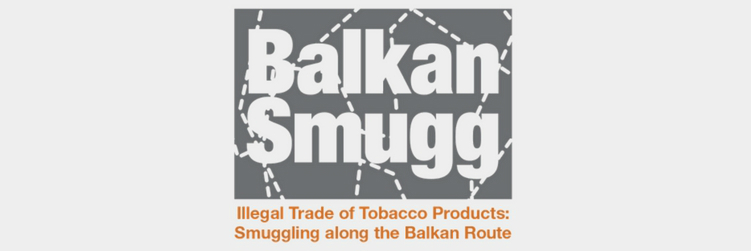Illegal Trade of Tobacco Products: Smuggling as Experienced along the Balkan Route – BALKANSMUGG

The Institute of Economics, Zagreb carried out the research project "Illegal Trade of Tobacco Products: Smuggling as Experienced along the Balkan Route – BalkanSmugg", funded by PMI IMPACT, a global grant award initiative of Philip Morris International, aimed at supporting public, private, and non-governmental organizations to develop and implement projects with a lasting impact against illegal trade and related crimes.
BalkanSmugg was one of the 32 projects selected by the Expert Council in the first funding round of this grant award initiative from more than 200 proposals received from various organizations from all around the world.
The project assessed illegal trade of cigarettes and other tobacco products and smuggling as experienced by citizens in countries along the Balkan route, namely Slovenia, Croatia, Bosnia and Herzegovina, Serbia, Montenegro, Macedonia and Kosovo.
The research estimated economic costs of illegal trade of tobacco products by determining the possible range of unofficial economy for the observed Balkan countries. It analyzed differences among excises and duties on tobacco products in order to understand their impact on Balkan tobacco smuggling routes. To forecast a gradual and predictable increase of the excises in all countries in the region in the long term, the project modelled scenarios of equalization of excises on tobacco products that would alleviate smuggling due to smaller price differentiation. One of the objectives of the project was to analyze structural changes in the production and value added of the tobacco industry, including the tobacco green leaf production in the observed countries.
The specific objective of the project was to produce a strong evidence base on the tobacco illegal trade attitudes and practices of smokers buying cigarettes on the black market. Therefore, in the core of this research was a survey assessment of attitudes and experiences of citizens in the region regarding illegal trade of cigarettes and other tobacco products.
Moreover, since survey data also enabled us to arrive at the estimated amount of lost revenues for all companies in the supply chain of tobacco and other products subject to smuggling, we also estimated the impact of these lost revenues on the GDP and employment in individual countries using the input-output model. This assessment was necessary to put the illegal trade with cigarettes and other tobacco products in a wider context and measurable economic framework.
An important goal of the project was to raise awareness about the harmfulness of illegal trade of cigarettes and OTP in the Balkan region and to produce policy recommendations to the stakeholders who were involved from the very beginning of the project.
The project had a long-lasting impact in the Balkan region and beyond. The project lasted two years, until July 14, 2019. The project team, which consisted of seven researchers, was led by Jelena Budak, deputy director of the Institute of Economics, Zagreb.
The results of the project are available in the attached documents (below).


